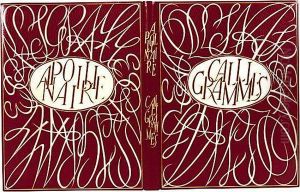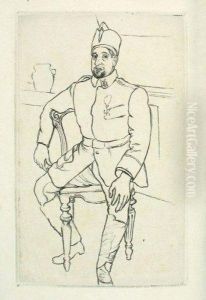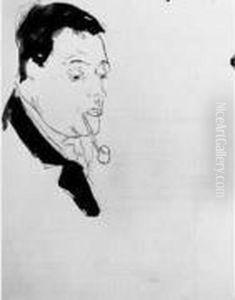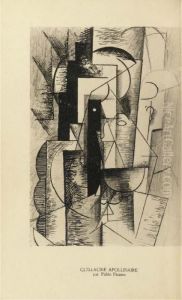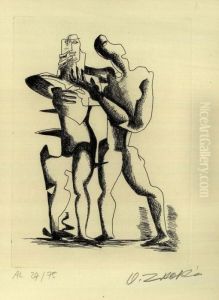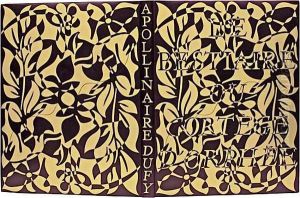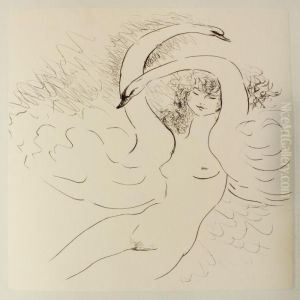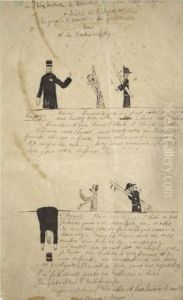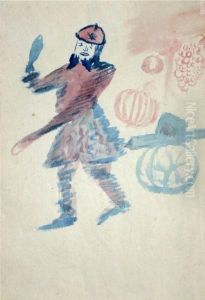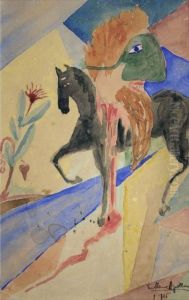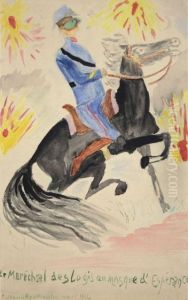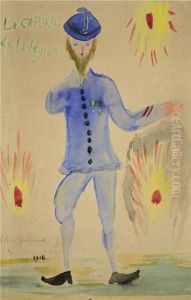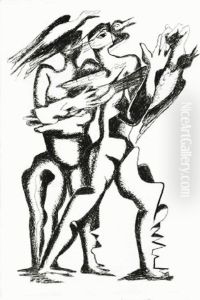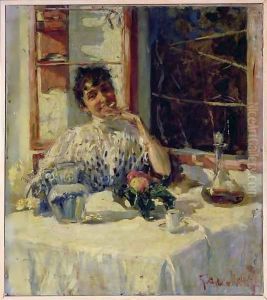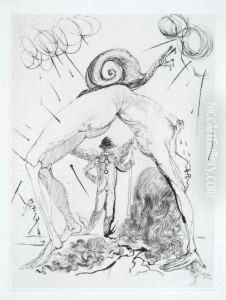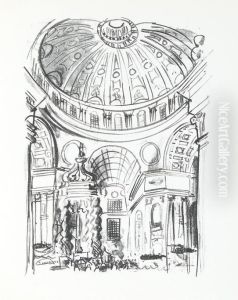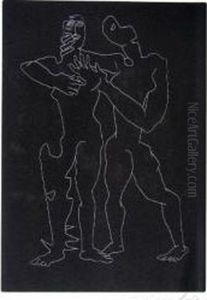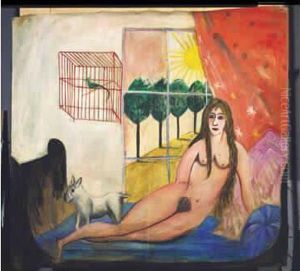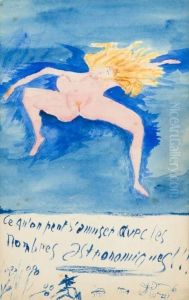Guillaume Apollinaire Paintings
Guillaume Apollinaire, born Wilhelm Albert Włodzimierz Apolinary Kostrowicki on August 26, 1880, in Rome, Italy, was a French poet, playwright, short story writer, novelist, and art critic, who is considered one of the foremost poets of the early 20th century. Apollinaire was a central figure in the Parisian artistic scene, bridging the gap between the Symbolists and the Surrealists. He was a friend and promoter of artists such as Pablo Picasso, Henri Matisse, and Marc Chagall, and his writings and activities significantly influenced the direction of contemporary art, especially Cubism and Surrealism.
Apollinaire was born to a Polish mother and an Italian officer, but he grew up speaking French and moved to France during his childhood, which greatly influenced his identification with French culture and literature. In Paris, he became associated with the artistic avant-garde, and his poetry collections, such as 'Alcools' (1913) and 'Calligrammes' (1918), are celebrated for their innovative use of form, including the use of free verse and typographical layouts that would visually represent the themes of his poetry.
During World War I, Apollinaire served in the French military, and his experiences on the front influenced his later work, especially 'Calligrammes', which combined his love for visual art with his poetry, creating a form he called 'ideograms'. His work during this period reflects the horrors of war but also a deep sense of patriotism and a belief in the transformative power of art.
Apollinaire's contributions to the development of modern art criticism are also significant. He coined the term 'Cubism' to describe the emerging art movement led by Picasso and Georges Braque and wrote extensively on themes of modernism and the role of the avant-garde in art. His theories and critical writings helped to legitimize and explain the new directions in which art was heading in the early 20th century.
Tragically, Apollinaire's life was cut short by the Spanish flu pandemic; he died on November 9, 1918, in Paris, at the age of 38. Despite his relatively short life, Apollinaire's influence on the development of modern art and poetry is profound, and he remains a pivotal figure in the study of early 20th-century art and literature.
